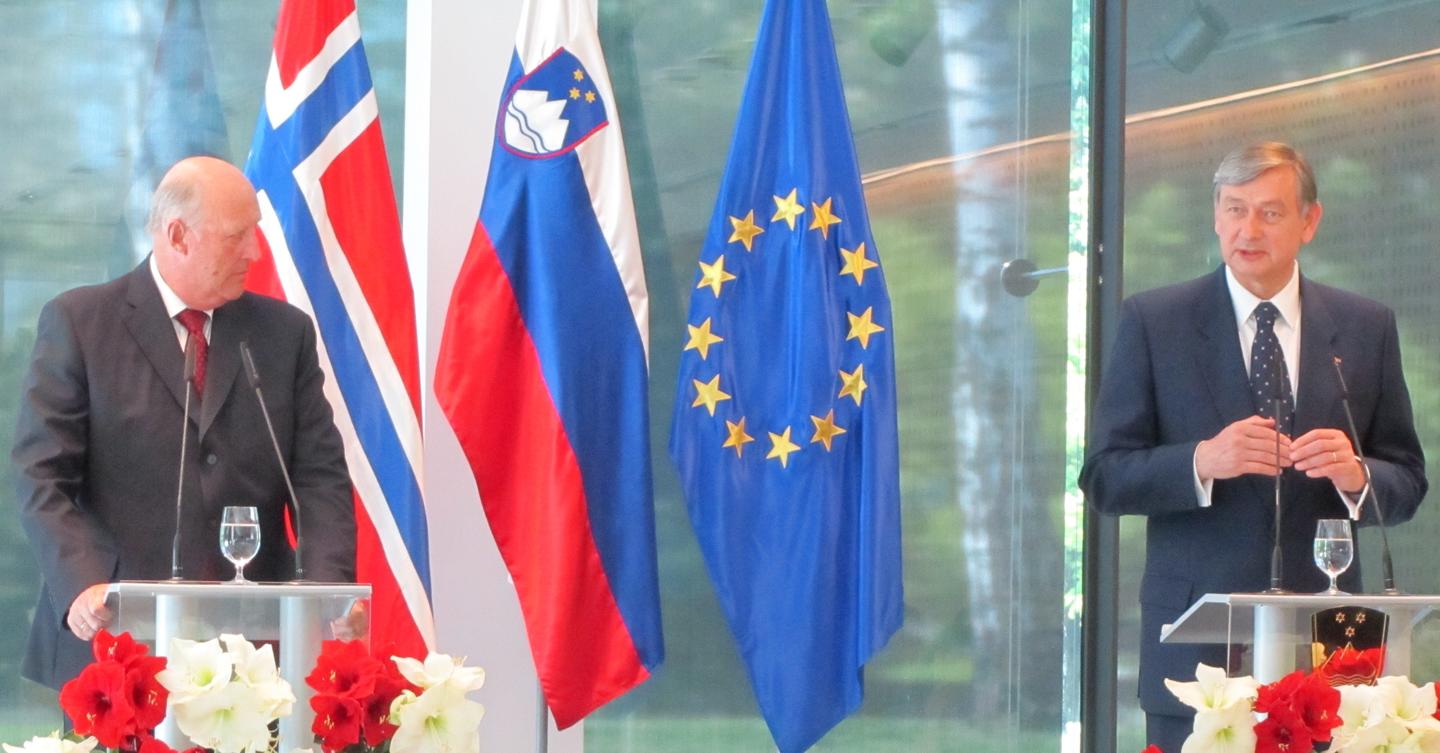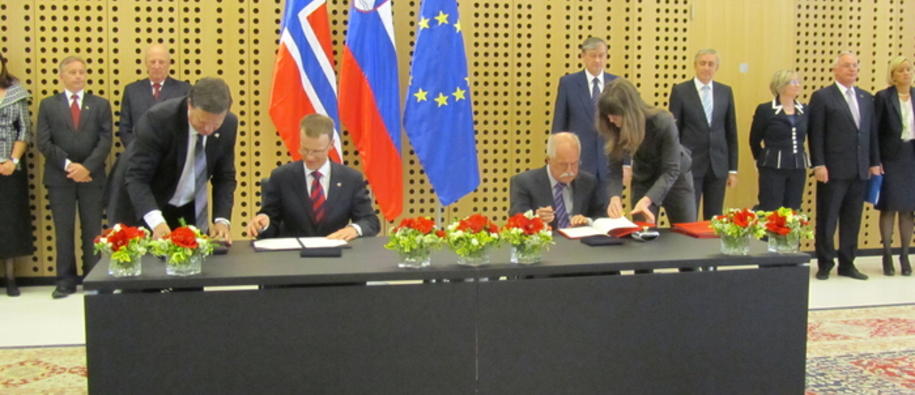On 9 May, on the occasion of an official state visit by Their Majesties King Harald V and Queen Sonja of Norway to the Republic of Slovenia, State Secretary Erik Lahnstein of the Norwegian Ministry of Foreign Affairs, and Slovenian Minister of Local Self-Government and Regional Policy Boštjan ekš, signed the framework agreements on the EEA and Norway Grants from Iceland, Liechtenstein and Norway for the period up to 2014. Norway provides 97% of this funding.
Focus on health
More than 40% of the funds transferred to Slovenia will be used to strengthen public health, gender equality and work-life balance initiatives. A public health programme to reduce health inequalities, prevent lifestyle-related diseases and improve mental health services will receive €10.2 million. It will be implemented in cooperation with the Norwegian Institute of Public Health. In addition, a project on gender equality and work-life balance will receive €1.4 million.
Strengthening bilateral cooperation
An important aspect of the new financing round are the many opportunities afforded under the grants for strengthening bilateral cooperation. In addition to bilateral project-level partnerships, there will also be cooperation between public institutions in Slovenia and Norway through donor partnership programmes.
Closer cooperation in the areas in question will benefit both Slovenia and Norway. “Strategically located in the heart of Europe, Slovenia is a gateway to South Eastern Europe and the Balkans. These new agreements mark an opportunity to really step up cooperation in many areas of mutual interest,” says Norwegian Minister of Foreign Affairs Jonas Gahr Støre.
Support for cultural heritage and environmental protection
Preserving cultural heritage – the sector in Slovenia that received the largest proportion of funding under the previous round (2004–09) – remains important. Around one-fifth (€5 million) of the total funding will finance projects aimed at safeguarding historic assets, increasing accessibility, and protecting natural heritage.
Environmental protection is another important sector, with €3.75 million earmarked for programmes to halt loss of biodiversity, protect ecosystems and improve environmental monitoring and integrated planning. The Norwegian Mapping Authority and the National Land Survey of Iceland will act as advisors in this biodiversity programme.
Civil society, social partners and students
Support will continue to be provided for the civil society sector and for scholarships for mobility of students and staff both to and from the donor states. New funding (€144,000) will be used to promote tripartite dialogue between the social partners. Almost €1.9 million will be channelled through a fund for NGOs, with a corresponding amount set aside for academic exchanges. The Norwegian Centre for International Cooperation in Higher Education, the Icelandic Centre for Research, and the National Agency for International Affairs (AIBA) of Liechtenstein will take part in the implementation of the scholarship programme.
Top photo: His Majesty King Harald of Norway and Slovenian President Dr Danilo Türk at the press conference following the signing of the agreements

